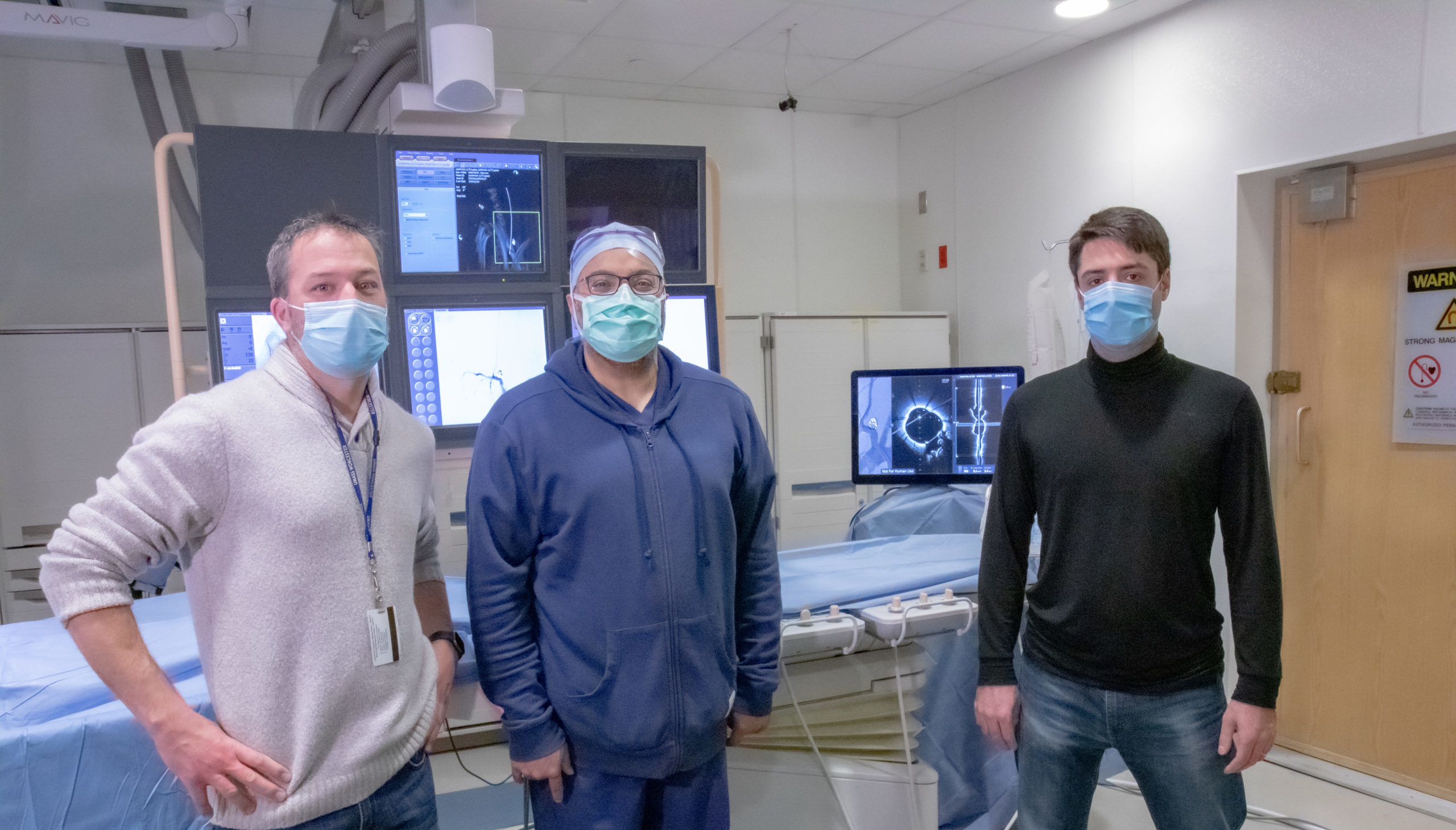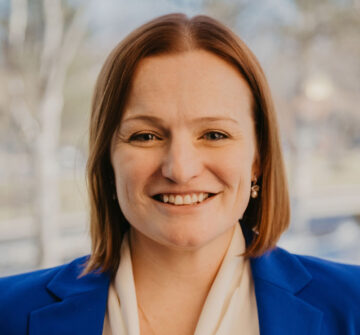According to the Brain Aneurism Foundation, it is estimated that approximately 6 million people in the United States (1 in 50) have a brain aneurysm and that approximately 30,000 people (one every 18 minutes) will suffer a rupture each year. Moreover, brain aneurysms are most prevalent between the age of 35 and 60 with no signs of warning, afflicting women more often than men at a ratio of 3:2. Dr. Matthew J. Gounis, who serves as Professor at the UMass Medical School Department of Radiology and is the Director of New England Center for Stroke Research, has more than 20 years of experience in stroke research and vascular imaging techniques.
“One of the fundamental problems with brain aneurism treatment is we have wonderful technologies being developed, but these device innovations are being hampered by limitations in imaging,” said Dr. Gounis. “If we can accelerate the availability of high-resolution imaging to achieve fuller detail, we can do better a job in efficacy of the treatment and generate better outcomes for patients.”
Dr. Gounis is collaborating with Sudbury, Massachusetts-based Gentuity, LLC to create a large imaging database and develop artificial intelligence (AI) processing methodologies, which they believe will catalyze new discoveries to improve the current understanding and treatment of brain aneurysms. In September 2019, it was announced this collaborative effort was awarded up to $750,000 from the Massachusetts Life Sciences Center (MLSC) through its Bits to Bytes Program, which provides grants for scientific projects that generate and analyze large datasets to answer pressing life science questions, and to attract and train data scientists in the Commonwealth.
The goal of Bits to Bytes is to employ data analytics and/or machine learning techniques to develop a greater understanding of various medical conditions, and ultimately to develop optimized treatments to improve patient health. Additionally, the MLSC and its partners are committed to a collective goal of attracting, training, and retaining data scientists to the life sciences. Exposing data scientists to careers within the life sciences can encourage the application of their much needed skill sets to the industry and mission-driven work of the life sciences.
There is a critical unmet need for high-resolution imaging that is specific to neuro-endovascular treatments. Despite decades of investment in research on brain aneurysms, many questions remain unanswered due, in part, to limitations in blood vessel imaging. The funding provided by the MLSC is contributing to the generation of a large collection of high-resolution neuro-endovascular images. The Bits to Bytes project team also believes the funding of this project will foster ‘big data’ science expertise in Massachusetts, with a focus on life science, imaging technologies and computational medicine and biology.
“There’s been an explosion of important work and research at the cross section of medicine, in particular medical imaging, and data science,” said Dr. Gounis. “I admire what the state is doing to draw more data science talent to the life sciences. Massachusetts has a unique opportunity to take a leadership position in the analysis and application of high-resolution imaging of brain aneurysms, creating new jobs and related expertise in this emerging field.”
Bits to Bytes project teams comprise of not-for-profit applicants collaborating with at least one for-profit Massachusetts life science company. Dr. Gounis is proud of the translational focus of his lab along with its very active engagement with the industry sector. Collaborating with industry is “absolutely essential” for Dr. Gounis in order to achieve a collective goal of improving patient health.
“We are grateful for the opportunity to contribute to this data-driven, collaborative effort,” said Giovanni J. Ughi, PhD, Director of Advanced Development at Gentuity. “The MLSC’s support will enable us to further realize the great potential our products hold for clinical and societal contribution as well as business success, in accelerating critical discoveries in the endovascular treatment of brain aneurysms, improving patient care and decreasing life threatening complications.”
Even through the COVID-19 pandemic, Dr. Gounis has been able to recruit a data scientist, supported by Gentuity, as a key member of the Bits to Bytes project team, which has conducted more 200 imaging studies and experiments. As the team has continued to analyze data and refine its AI pipeline, Dr. Gounis also co-authored an article in Nature Communications on a collaborative effort exploring the potential impact of high-resolution neurovascular imaging for improving the treatment of stroke.
The MLSC recently launched its latest round of Bits to Bytes to invest up to $5 million capital dollars to support work and equipment at not-for-profit partners. Awards given out will be approximately $750,000 to solve some of the most pressing life science questions using high-throughput approaches to generating and analyzing large datasets. For this solicitation, the MLSC is particularly interested in supporting applicants whose research will lead to significant healthcare advances using data-driven approaches and who will recruit and train data scientists in the life science field. While different areas of translational research have different time horizons, successful proposals will explain a clear path, with executable milestones, that leads to new discoveries in partnership with a company.



